





Peanut caloric content
So-called "peanut" – a peanut – actually belongs to family of bean. At the same time more any true nut it is rich with phytalbumins and special substance – Niacinum having ability to revitalize brain tissues.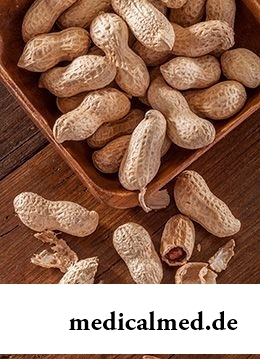
How many calories in a peanut
The peanut – a valuable nutritious product and an oil-bearing crop, is used as raw materials in various industries of medicine and the industry. Caloric content of a peanut makes about 550 kcal on 100 g of a product, at the same time it contains 26,3 g of protein, 46 g of fats, 9,9 g of carbohydrates and 7,7 g of cellulose. The peanut extremely favorably influences updating and growth of cells and fabrics.
It is used as soft cholagogue means and, despite the high caloric content of a peanut, appreciated as the product normalizing blood cholesterol level. Also it well affects a libido and a potentiality, helps to concentrate attention, improves memory, it is recommended at bystry fatigue and sleeplessness.
Despite peanut caloric content, it is extremely popular around the world. Brazil is considered its homeland, and he takes the second place in the world among crops. At the time of Inca in the territory of modern Peru cultivated this one-year culture. Almost on a half the peanut consists of vegetable fats (at the same time more than 8% of a product make saturated fatty acids) and for 30% from proteins.
Besides the peanut is rich with PP (B3) vitamin or niacin (14 mg in 100 g of a product) which is an antipellagric factor and protects from dementia (weak-mindedness, Alzheimer's disease), intestinal frustration and inflammations of integuments. Valuable properties of a product are shown at its correct preparation, that is frying without oil and other nutritional supplements.
Peanut: calories, structure and valuable properties
Despite the high caloric content of a peanut, useful fats in its structure promote decrease in body weight. On the valuable properties peanut butter practically does not concede to olive. At the same time the caloric content of a peanut it is necessary to consider and not to exceed the maximum daily dose of nut – the following amount of nutrients contains no more than 50 g 100 g of a peanut:
- Niacin (RR vitamin) – 14 mg;
- Thiamin (B1 vitamin) – 0,74 mg;
- Riboflavinum (B2 vitamin) – 0,11 mg;
- Pantothenic acid (B5 vitamin) - 1,767 mg;
- Pyridoxine (B6 vitamin) – 0,348 mg;
- Folic acid (B9 vitamin) – 240 mkg;
- Ascorbic acid (vitamin C) – 5,3 mg;
- Tocopherol (vitamin E) – 10,1 mg;
- Niacinum – 18,9 mg;
- Sincaline – 52,5 mg;
- Calcium – 76 mg;
- Magnesium – 182 mg;
- Sodium – 23 mg;
- Potassium – 658 mg;
- Phosphorus – 350 mg;
- Gland – 5 mg;
- Zinc – 3,27 mg;
- Copper – 1144 mkg;
- Manganese – 1,934 mg;
- Selenium – 7,2 mkg.
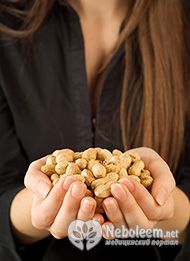
The peanut is rich with antioxidants (polyphenols) which interfere with development of cardiovascular and oncological diseases, protect from a senilism. Despite of the peanut caloric content, inclusion of a product in various diets for weight reduction it is based on that sense of fulness which it gives. Vegetable proteins as a part of a peanut are balanced from the point of view of the replaceable and irreplaceable amino acids entering them therefore are perfectly acquired in the course of digestion.
Except other hepatoprotective action is peculiar to a peanut, it promotes a normal hemopoiesis and renewal of cells of an epithelium, including vascular, improves memory, attention and hearing.
The use of a peanut in excess quantity is fraught with negative effects. First of all it leads to rapid growth of body weight. Also disturbances of digestion and allergic reactions are noted (an itch, nausea and vomiting, abdominal pains, a Quincke's edema and even an acute anaphylaxis). Considering richness of a peanut in calories, it is shown in a food allowance at a serious illness and exhaustion.
Was considered earlier that yawning enriches an organism with oxygen. However this opinion was disproved. Scientists proved that yawning, the person cools a brain and improves its working capacity.

The words "disease" and "patient" not without reason come from one root – "pain". As a rule, symptoms of illnesses thoroughly spoil the patient...
Section: Articles about health
Work of a brain is extremely complex and in many respects is not studied yet. It is confirmed also by the features of thought processes which are shown when the person sleeps. Let's tell about some of them....
Section: Articles about health
Scientists have no unambiguous opinion on a proximate cause of emergence of a carcinoma cutaneum today. Only the factors promoting development of this illness are precisely established. Treat them: long impact on skin of ultraviolet rays, radiation exposure, thermal injuries, injuries of skin by aggressive chemicals (pitches, acids, alkalis, etc.), genetic predisposition (existence of malignant new growths of skin in the family anamnesis), at...
Section: Articles about health
For the city dweller the fitness is the most convenient sport. It is enough to acquire the subscription to the gym to receive to a toast...
Section: Articles about health
History of use of an anesthesia during operations contains more than 160 years. Annually in the world hundreds of thousands of surgical interventions during which to patients the substances immersing them in a dream and saving from pain are entered are carried out. Using an anesthesia to these...
Section: Articles about health
For anybody not a secret that the modern person eats not as his ancestors. For the last 100 years in broad access there were absolutely new products which are result of use of the latest technologies in food production. Significantly ways of storage and transportation of food ingredients changed, and people of the whole world had an opportunity to regularly use those products about which their grandfathers and grandmothers did not even know....
Section: Articles about health
White teeth and the Hollywood smile – a dream of many people. Long time was considered that a plaque on teeth and change of their color – destiny of those...
Section: Articles about health
Obesity is called a disease of 21 centuries, for the last 100 years the number of the people suffering from excess body weight considerably increased. Statistically, on Earth already about 1,5 billion corpulent people, and 500 million from them have extreme degree of completeness, are negative...
Section: Articles about health
Bulimia and anorexia, are heavy deviations of a feeding behavior, become a cause of death of patients much more often than all other nervous breakdowns combined. In 60% of cases two illnesses accompany each other: patients feel horror before danger of set of excess weight and try to refuse as often as possible food, but periodically suffer from attacks of sudden hunger and an uncontrollable overeating. Each patient with anorexia and bulimia needs the help qualified пс...
Section: Articles about health
The nature does not stand stagnation and monotony. It is known that tissues of a human body atrophy if do not receive necessary loadings...
Section: Articles about health
From sexual contacts each person can test insufficiently strongly expressed sexual desire or lack of satisfaction from time to time. However when it happens regularly, it is an occasion to think about health. Most of people does not hurry an obrashcha...
Section: Articles about health
Musicotherapy – a treatment method which caused and causes a set of a controversy concerning its efficiency. However the facts are relentless: during the numerous researches curative impact of music on an organism was scientifically confirmed. Since then in a number of the countries the technique is included complex therapy of diseases of cardiovascular and respiratory system, dorsodynias and a backbone, psychosomatic disturbances and many other illnesses. The musicotherapy in a pedi is especially widely applied...
Section: Articles about health
The climax, or menopause is the normal process of the termination of genital function of the woman which is followed serious hormonal...
Section: Articles about health
What they, women? Beautiful, gentle, passionate and at the same time windy, gusty, and nervous. And what is stranger: have all these qualities of the woman at the same time. But here only the mood their time sharply changes on completely opposite: in the morning...
Section: Articles about health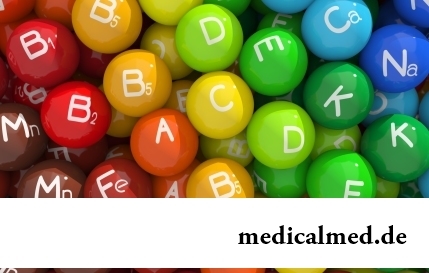
Vitamin complexes belong to the most popular drugs, probably, in our country there is no person who was not hearing about advantage of vitamins and never their accepting. The more vitamins, the better, we consider and as it appeared, cruelly we are mistaken. Whether vitamins, whether so harmlessly general hobby for polyvitaminic complexes and whether it is possible to do without them are so useful? Let's try to understand....
Section: Articles about health
Statistically, in Russia about 34% of citizens smoke. Most of consumers of tobacco has problems about health sooner or later...
Section: Articles about health
Feeding by a breast - the integral part of ideal motherhood allowing to come into contact with the kid and to create to it healthy immunity since early years. Nevertheless, this important process in life of mother and child can be saddened laktostazy − by a delay of milts...
Section: Articles about health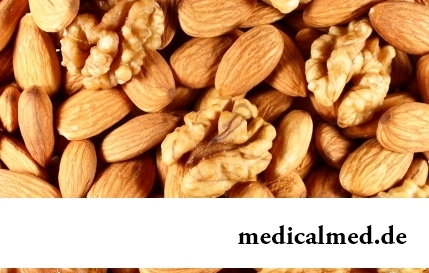
For the last decades the diabetes mellitus of the second type became really world problem. The number of cases annually increases, and average age of patients for whom the illness is diagnosed, steadily decreases. Specialists consider that one of the main reasons for this trouble is disturbance of a diet. In other words, the huge number of people regularly overeats or excessively is fond of the products causing glucose exchange process failures....
Section: Articles about health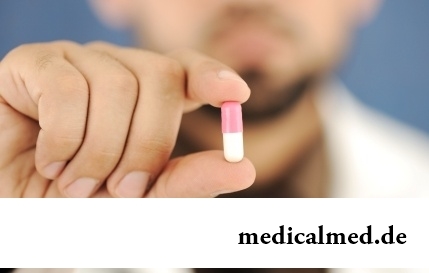
The drugs stopping or oppressing life activity of pathogenic microorganisms are widely applied in clinical practice with 4...
Section: Articles about health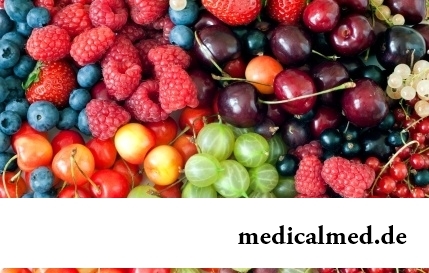
All the known slogan "Protect Men!" arose not from scratch. In a sense, the nature created men much less adapted for vital disorders, than it seems at first sight. Statistically, men are ill more often...
Section: Articles about health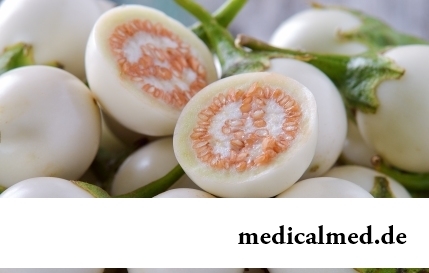
It is possible to find the extensive range of fruit and vegetables in modern shops. Russians already got used that on counters there is not only a seasonal domestic production, but the vegetables and fruit which are grown up in the countries with more comfortable conditions of cultivation at all seasons of the year. However what we see in shops and in the vegetable markets, is only a small part of those edible plants with which the nature is so rich. Today we want to acquaint the reader with rare and very useful vegetables which on...
Section: Articles about health
Each of us repeatedly noticed that the people having the same passport age are sometimes not similar on one-years at all. One...
Section: Articles about health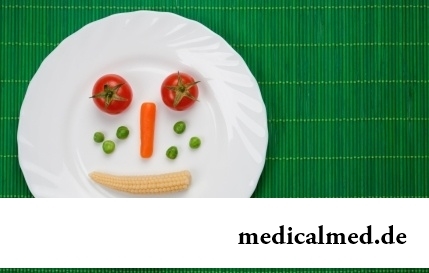
About influence of fasting days on an organism it is told much – both about advantages, and about shortcomings. It is considered that fasting day in the form of a short-term monodiet is useful, promoting effective removal of slags from an organism whereas irregular, it is excessive п...
Section: Articles about health
Any of us is not insured from a heavy illness of the loved one. Happens and so that someone from family members becomes the bed patient, and remains in such state for a long time. It extremely suppresses both the most injured, and all its house which life considerably changes....
Section: Articles about health
Run - one of the most available and effective ways to revitalize the organism. Knowing about its extraordinary advantage, each of us though...
Section: Articles about health
The depression not without reason is considered one their main troubles of our century: for scientific and technical progress, acceleration of rate of life and a surplus of information of people it is forced to pay with stresses, negative emotions and weakening of protective forces of an organism. As a result ш...
Section: Articles about health
The body of the person almost for 60% consists of water. It is so important for normal functioning of an organism that loss of only one and a half percent of liquid already leads to the most unpleasant effects. The problems connected with deficit of water can overtake also the healthiest person if he, for example, spends several hours under the scorching sun, without having taken with themselves drink, but is very simple to correct health in this case. It is much more difficult to minimize effects of other reasons about...
Section: Articles about health
